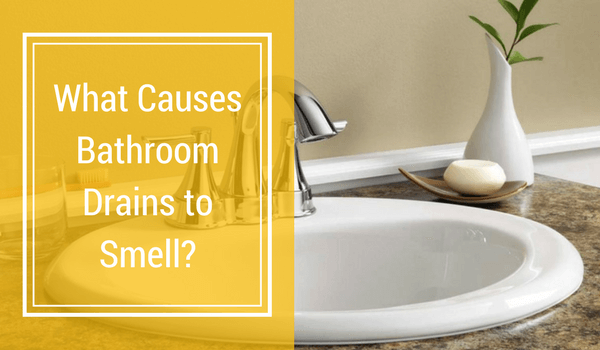
Have you noticed a rotten, sewer-like smell coming from your bathroom drain? Unpleasant odors shouldn’t be the norm for your bathroom sink, so it’s important to identify and address the problem before it gets worse. Depending on the structure of your plumbing system and bathroom sink, there could be various conditions leading to the unpleasant odor.
Biofilm Buildup in the Pipes
From toothpaste and shaving cream to dead skin cells and soapy water, bathroom sinks see a lot of waste every day. The warm, wet pipes beneath the sink provide the perfect environment for smelly bacteria to flourish, and a slimy black gunk called biofilm may start to build up. An easy diagnostic test for biofilm is to unlatch and pull out the sink stopper. If it’s covered in dark, slimy gunk, then chances are, so are your pipes.
Fortunately, this problem isn’t very difficult to treat. Pouring cleaning products designed for sinks down the drain can help eliminate the odor, as can rinsing out the pipes with a vinegar solution. However, it is important to never mix vinegar and bleach – doing so produces highly toxic fumes. Follow your cleaner of choice with a pot of hot water, administered 2 cups at a time.
If your biofilm buildup is severe, you may have to disassemble the pipes beneath your sink to manually clean them with a paper towel and an old toothbrush. However, making a mistake in reassembling the pipes can easily lead to a leak and expensive water damage. If you aren’t sure, it’s always better to call a professional plumber for this task.
Bathroom Sink Smells Like Sewer
If the odor emanating from your bathroom sink smells strongly of sewage, then sewage may be the actual culprit. Remember, all your water waste eventually drains to the same place, so the runoff from your bathroom sink will be sharing a pipe with sewage down the line. There are two main plumbing elements that help keep the sewer gases from coming up out of your drains – the P trap and the vent – and a malfunction with either one can cause sewer gases to leak into your home.
Is Your P Trap Dry?
A P trap is a U-shaped segment of pipe under your bathroom sink. It should always contain water, and that water forms a barrier that prevents gas from the pipes beyond from coming up out of your sink drain. If your P trap is dry, then it isn’t blocking the passage of gas back up through your drain, and sewer gases will leak into your home, a situation which is both unhealthy and unpleasant.
This issue is especially common is guest bathrooms or sinks that aren’t used often, where the water in the trap may dry up over time. Fortunately, the solution can be as simple as running the water for a few minutes allowing water to reaccumulate in the P trap.
The Importance of a Working Vent
Even with a functioning P trap, smelly gas inside the pipes would eventually work its way out and up through the drain. That’s why plumbing systems also come equipped with vents, which allow trapped gases to travel through the pipes and escape to the outside through vents, where they can dissipate without leaving an unpleasant odor in the home. If your vent is blocked, these gases will begin to leak out through the drains. At that point, it’s probably best to call a professional plumber, who can identify the problem and clean out and restore the functioning of your venting system.
Why Does My Bathroom Smell?
There’s no single cause for all bathroom drain odors, but dry P traps, blocked vents, and biofilm buildup are common culprits. If you’re not sure how to address a smelly bathroom sink, call the professionals at Benjamin Franklin Plumbing® of Eastern Iowa. We will be happy to give you a hand.
